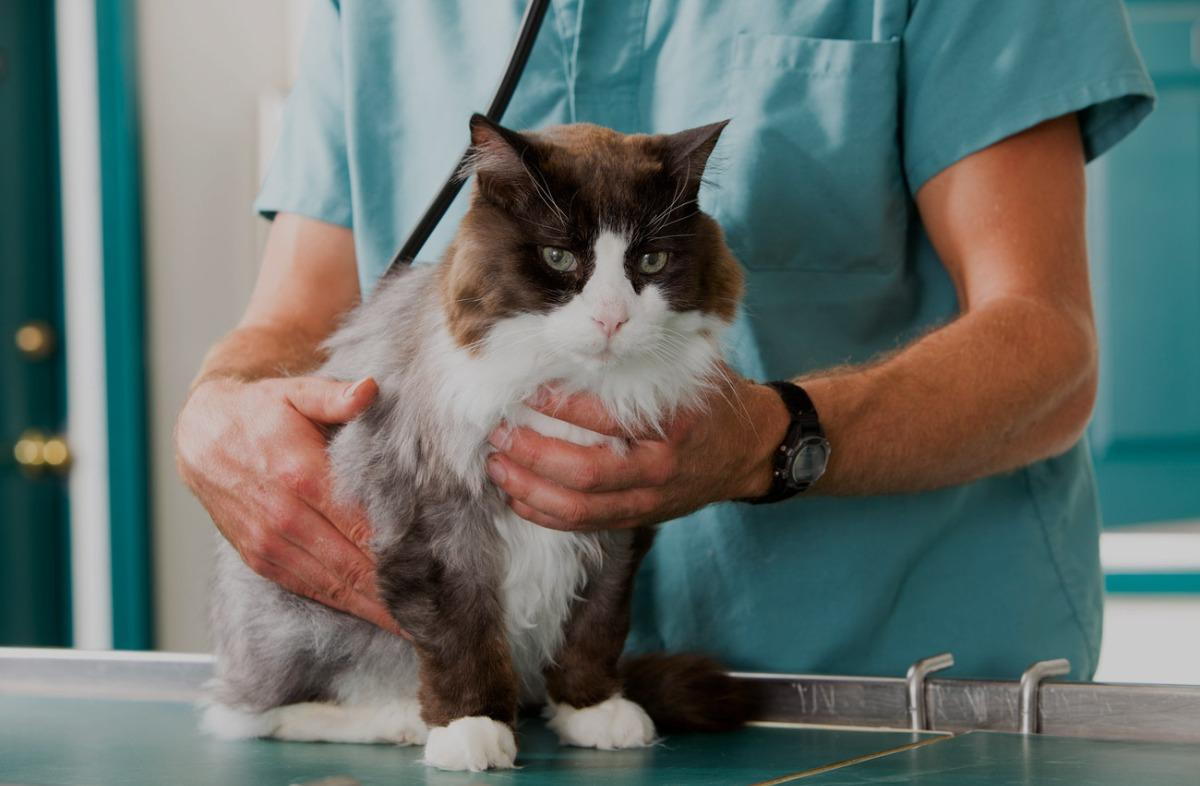Yes, cats can get stomach aches. Cats are known for their picky eating habits and it’s not uncommon for them to experience tummy troubles from time to time.
Stomach aches in cats can be caused by a variety of factors, such as eating something they shouldn’t have, a viral or bacterial infection, or even stress. Symptoms may include vomiting, diarrhea, loss of appetite, and lethargy. In some cases, a trip to the vet may be necessary to determine the underlying cause and receive proper treatment. Proactive measures such as offering a balanced diet, providing regular exercise and minimizing stress can go a long way in preventing stomach issues for your feline friend.

Credit: allaboutcatsonline.com
What Are Stomach Aches In Cats?
Stomach aches are a common issue in cats. It’s a painful condition involving the gastrointestinal tract and can be due to various factors. A stomach ache in cats is a condition in which there’s a discomfort in the digestive system.
Symptoms include vomiting, diarrhea, abdominal pain, and loss of appetite. The causes of stomach aches in cats can be due to overeating, dietary changes, ingestion of toxins, and intestinal parasites. In some cases, underlying medical conditions such as pancreatitis, kidney disease, and cancer can also contribute to stomach aches.
Regular veterinary check-ups, a healthy diet, and appropriate medical care can prevent and alleviate stomach aches in cats. Being aware of their behavior can help owners identify when their cat may be experiencing an underlying stomach issue.
Diagnosing Stomach Aches In Cats
Cats do get stomach aches, just like humans. To diagnose a cat’s stomach ache, a physical examination by a veterinarian is necessary. Tests like bloodwork, fecal exams, and imaging may also be performed. Common conditions that are found during diagnosis include pancreatitis, inflammatory bowel disease, and kidney disease.
It’s important to monitor your cat’s behavior and eating habits to detect any changes or signs of discomfort. If your cat has frequent stomach aches or experiences vomiting and diarrhea, seek veterinary care as soon as possible to determine the underlying cause and receive appropriate treatment.
Regular check-ups and preventive care can help keep your cat healthy and happy.
Stomach and Intestinal Ulcers in Cats
Preventative Measures For Stomach Aches In Cats
Cats may experience stomach aches due to various reasons, including diet, harmful substances, or lack of exercise. It’s crucial to manage their food intake by feeding them healthy food and avoiding fatty or spicy options. Additionally, cats should stay away from plants and substances that may be toxic to them.
Medications or chemicals may also trigger stomach problems in cats, so it’s best to keep them out of reach. Encouraging exercise and playtime can help keep cats active and maintain their digestive system’s health. Stomach aches in cats should never be ignored, so if they persist for more than a day, take them to the vet.
A little attention and preventative care can help prevent stomach aches in cats.
Home Remedies For Stomach Aches In Cats
Cats can indeed experience stomach aches, just like humans. Fortunately, there are safe and effective home remedies available. Natural and herbal remedies can be used, such as ginger, chamomile tea, and probiotics to aid digestion. Supplements like digestive enzymes and slippery elm bark can also help.
It’s important to note, however, that some home remedies that work for humans may not be safe for cats, so it’s important to consult with a veterinarian before trying any remedy. By utilizing these safe and natural remedies, you can help alleviate your cat’s stomach discomfort and ensure their overall health and wellbeing.
Medical Treatments For Stomach Aches In Cats
Cats, just like humans, are prone to experiencing stomach aches from time to time. To treat stomach aches in cats, veterinarians may prescribe medications such as antacids, anti-nausea drugs, or antibiotics. In more severe cases, a surgical procedure may be necessary.
However, there are also ways pet owners can manage their cat’s stomach ache symptoms at home, such as feeding them a bland diet, providing small and frequent meals throughout the day, or withholding food and water for a few hours.
It’s important to monitor your furry friend’s behavior and schedule regular checkups with their veterinarian to address any stomach problems early on. By following these treatment options, cats can find relief from stomach pains and lead happier and healthier lives.
Frequently Asked Questions For Do Cats Get Stomach Aches
Do Cats Experience Stomach Aches?
Yes. Cats can experience stomach aches, which can be due to a variety of factors, including eating too much all at once or eating something that they’re not supposed to.
What Are The Symptoms Of A Cat Experiencing A Stomach Ache?
Common symptoms of stomach aches in cats include diarrhea, vomiting, refusing to eat, lethargy, and crying out in pain when his or her stomach is touched.
What Should I Do If My Cat Has A Stomach Ache?
If your cat has a stomach ache, be sure to keep them hydrated and monitor them closely. If the problem persists, be sure to take them to the vet, who can help identify the root cause of the problem.
Can A Simple Change In Diet Upset A Cat’S Stomach?
Yes. A sudden change in diet, even if it’s just the type of cat food, can upset a cat’s stomach. To avoid this, gradually make changes to their diet over a period of a few weeks.
Conclusion
After completing our discussion, it is evident that cats can suffer from stomach aches, just like humans. Various factors like diet, foreign objects ingestion, and gastrointestinal disorders can lead to stomach pain and discomfort in cats. Recognizing the signs of a cat’s stomachache and seeking immediate veterinary attention is crucial in treating any underlying condition.
Additionally, providing your feline friend with a healthy and balanced diet, proper hydration, and regular grooming can help prevent stomach issues. As a cat owner, your responsibility is not only to provide them love and affection but also to keep them in good health.
Our furry friends rely entirely on us for their well-being, and a little awareness can go a long way in ensuring they live a happy and healthy life. Remember to consult with a veterinarian if you notice any symptoms of stomach issues in your cat.
{ “@context”: “https://schema.org”, “@type”: “FAQPage”, “mainEntity”: [ { “@type”: “Question”, “name”: “Do cats experience stomach aches?”, “acceptedAnswer”: { “@type”: “Answer”, “text”: “Yes. Cats can experience stomach aches, which can be due to a variety of factors, including eating too much all at once or eating something that they’re not supposed to.” } } , { “@type”: “Question”, “name”: “What are the symptoms of a cat experiencing a stomach ache?”, “acceptedAnswer”: { “@type”: “Answer”, “text”: “Common symptoms of stomach aches in cats include diarrhea, vomiting, refusing to eat, lethargy, and crying out in pain when his or her stomach is touched.” } } , { “@type”: “Question”, “name”: “What should I do if my cat has a stomach ache?”, “acceptedAnswer”: { “@type”: “Answer”, “text”: “If your cat has a stomach ache, be sure to keep them hydrated and monitor them closely. If the problem persists, be sure to take them to the vet, who can help identify the root cause of the problem.” } } , { “@type”: “Question”, “name”: “Can a simple change in diet upset a cat’s stomach?”, “acceptedAnswer”: { “@type”: “Answer”, “text”: “Yes. A sudden change in diet, even if it’s just the type of cat food, can upset a cat’s stomach. To avoid this, gradually make changes to their diet over a period of a few weeks.” } } ] }



